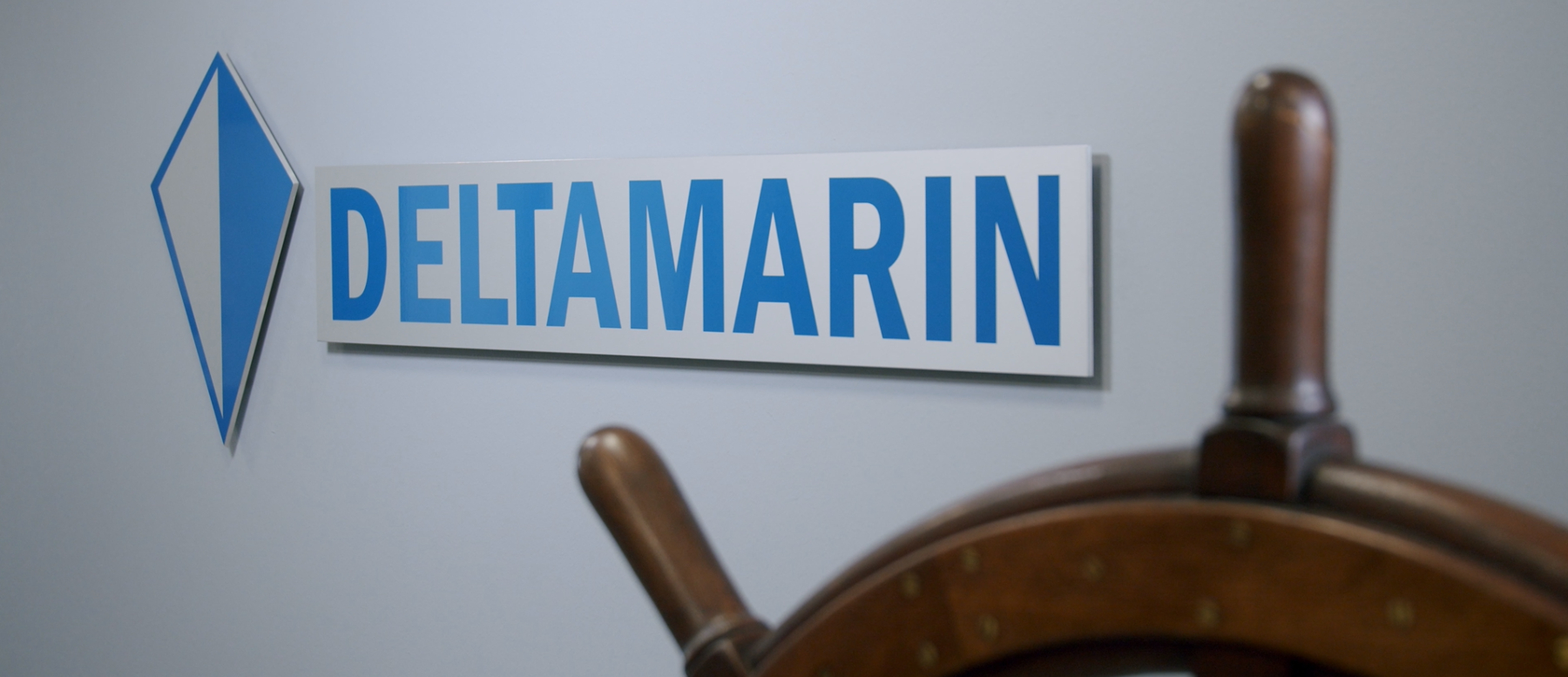
Deltamarin, which operates in ship design, considers functioning IT an essential part of business. Because of global projects, 24/7 business continuity is exceptionally challenging. So is managing the information flow of a digital design process.
“We used to administer our server room and intranet on our own. It took considerable technical know-how, and our team practically had one person and their backup familiar with the area. This was not an optimal situation in terms of risk management.”
Deltamarin wanted to reduce personal risk
Deltamarin employs approximately 350 people in Finland, Poland and China. Its information management is maintained from Finland and led by CIO Lars-Johan Rehn.
The company’s information systems are mainly built on top of a server room in the Turku office, but also Gdansk and Shanghai have local capacity.
“We used to administer our server room and intranet on our own. It took considerable technical know-how, and our team practically had one person and their backup familiar with the area. This was not an optimal situation in terms of risk management, because, in case of absences due to sickness or any other issues, the environment would have been fragile,” Lars-Johan says.
For this reason, Deltamarin began to research how outsourcing infra could be done. Cost-efficiency and limited resources were also contributing factors.
“We wanted a solution, where our staff could focus on core business collaboration instead of managing basic infra and technical maintenance tasks.”
The solution: IaaS Onsite, i.e. outsourcing server room infra to Tietokeskus
Deltamarin ended up moving the server room infra and its surrounding environments under Tietokeskus’ data center services.
“Our IT environment is challenging, as we use different CAD systems in our design work. They are susceptible to latency and must be close to the users. They cannot be moved to the cloud like applications in general,” Lars-Johan states.
In other words, services still reside in Deltamarin’s own server room and the intranet environment it connects to. Yet the operating system and software platform solutions are now all maintained by Tietokeskus.
There is plenty to still develop, for change is constant. For this reason, the project has been approached step by step: the first ones developed were areas in need of modernization. These days development projects are approached more systematically. With development as a constant endeavor, the IT budget is not devoured in huge, single chunks.
Lars-Johan has been pleased with the collaboration.
“The people of Tietokeskus are good at what they do. We have had honest communication from the start, and we get things done in a positive spirit.”
Next on the agenda is the transfer of workstation management to Tietokeskus. Workstations are tightly linked to the server environment, and once the project is completed, the entire chain from the IT infra’s lifecycle, beginning to end, is produced as a single service.
“The goal is that, at the end of the project, we will have the possibility of getting pre-installed workstations from Tietokeskus’ online store,” Lars-Johan sums up.
“Not everything went smoothly right away, but now things are on track. The benefit of working with such a suitably sized Finnish company is that everything has been negotiable and that we get things done.”
IT projects rarely go entirely according to plan – facing the challenges is the important part
Deltamarin is well aware of the challenges in the IT world. Thus, it was important to select the right partner.
“This type of outsourcing project never goes entirely according to plan, which we knew in advance. You need the type of partner you can negotiate with in times of trouble,” Lars-Johan points out.
And, as anticipated, challenges arose along the way. For example, monitoring services and boosting information flow have needed some fine-tuning and specific agreements on who does what and when.
“Not everything went smoothly right away, but now things are on track. The advantage of working with such a suitable sized, Finnish company is that everything has been negotiable and we get things done.”
The collaboration has always resulted in the desired outcome.
“Risk management, i.e. reducing personal risk, has been realized. Now, instead of 1–2 persons, we have an entire team managing these matters at Tietokeskus.”
Improved risk management and surveillance
Outsourcing has resulted in the desired benefits.
“Risk management, i.e. reducing personal risk, has been realized. Now, instead of 1–2 persons, we have an entire team managing these matters at Tietokeskus.”
Surveillance has also improved. According to Lars-Johan, Deltamarin’s team would have an impossible task in monitoring critical services 24/7. This is now handled by Tietokeskus’ team, which takes measures if there are disturbances in the servers. This too saves time.
“Curerntly, our IT team has eight people. Three of them have been busy with the infra, so now we have time being freed from those tasks. At the same time, tasks are shifted from the management of the technical side to guiding projects. Developing expertise and one’s skills will also become a central area due to the change.”
He also reminds that these types of IT projects rarely impact the IT team alone. Functioning IT requires collaboration between the main users, owners and the technical side. This is why outsourcing the server room maintenance also resulted in a larger change within the operating model of Deltamarin, relying on best practices in the industry.
Deltamarin’s HR chief human resources officer has also applauded the current state of IT. Apparently, the company’s IT is now in its best shape ever. Lars-Johan agrees.
“I can see that once we have completed this change in our operating model, collaboration with Tietokeskus can be useful in other ways as well. Now that we have outsourced the more technical areas, we can free up our own employees’ time into developing our business.”
